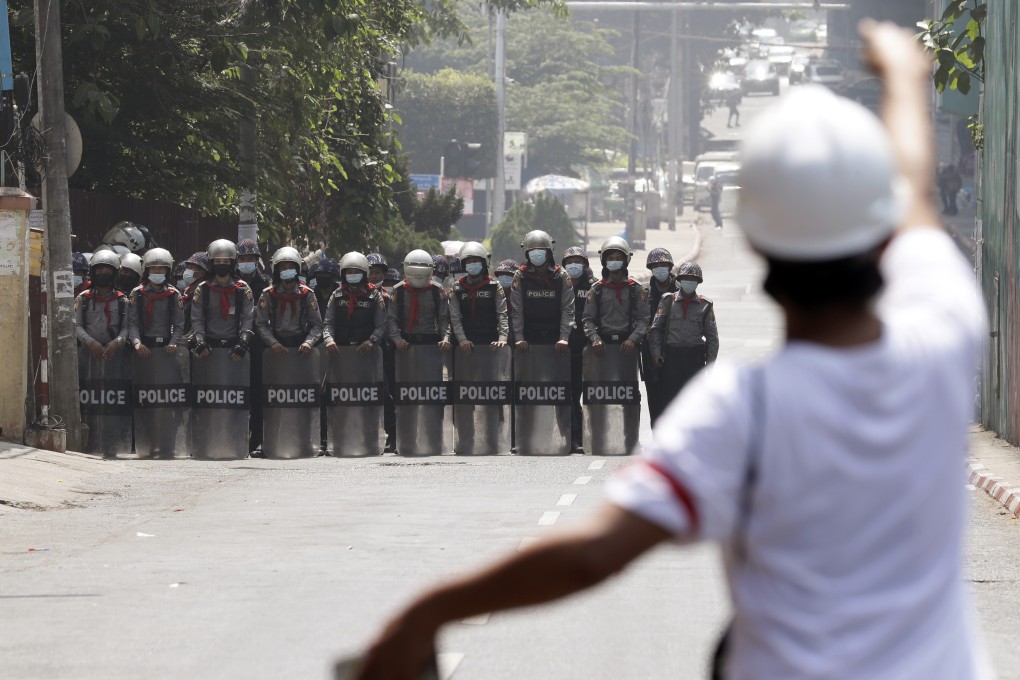Advertisement
Singapore minister on Myanmar coup: ‘difficult to conclude’ for now whether companies should pull out amid political crisis
- At SCMP’s China Conference: Southeast Asia, Trade Minister Chan Chun Sing said that investments had helped create jobs and grow Myanmar’s economy
- He called for the US and China to cooperate amid competition, and said Singapore would seek economic opportunities in the Greater Bay Area
Reading Time:4 minutes
Why you can trust SCMP

Singapore’s government is helping investors based in the city state make sense of the political crisis in Myanmar by providing them with updates on the unfolding situation, trade minister Chan Chun Sing said on Friday, adding that it was “difficult to conclude” at this point whether companies should reconsider their presence there.
He reiterated a point made by the Singapore government that many investments from the city state had taken place under the civilian government led by Aung San Suu Kyi‘s National League for Democracy (NLD), and that these had benefited Myanmar’s citizens.
“Many of our investments go in there, create jobs for the Myanmar people to grow the economy and provide more opportunities for the people,” he said.

03:10
Myanmar anti-coup protesters plan their largest mass rally yet after deadly clash with military
Myanmar anti-coup protesters plan their largest mass rally yet after deadly clash with military
Chan made the comments at the South China Morning Post’s China Conference: Southeast Asia, when asked how Singapore firms should view developments in Myanmar and whether they should pull out of the country, a member of the 10-nation Asean bloc.
Advertisement
Singapore is ranked as the top source of foreign direct investment in Myanmar and other countries including China, India and Indonesia, as the financial hub has traditionally been a gateway for capital flows into those markets.
“From Singapore’s perspective, we will make available information that we know and share them with companies operating out of Singapore so that they can best make their own commercial decisions,” Chan said.
Advertisement
Myanmar, a country of 54.4 million, has seen a growing civil disobedience movement in defiance of the generals who seized power in a February 1 coup and detained elected leaders, including Nobel laureate Suu Kyi.
Advertisement
Select Voice
Select Speed
1.00x